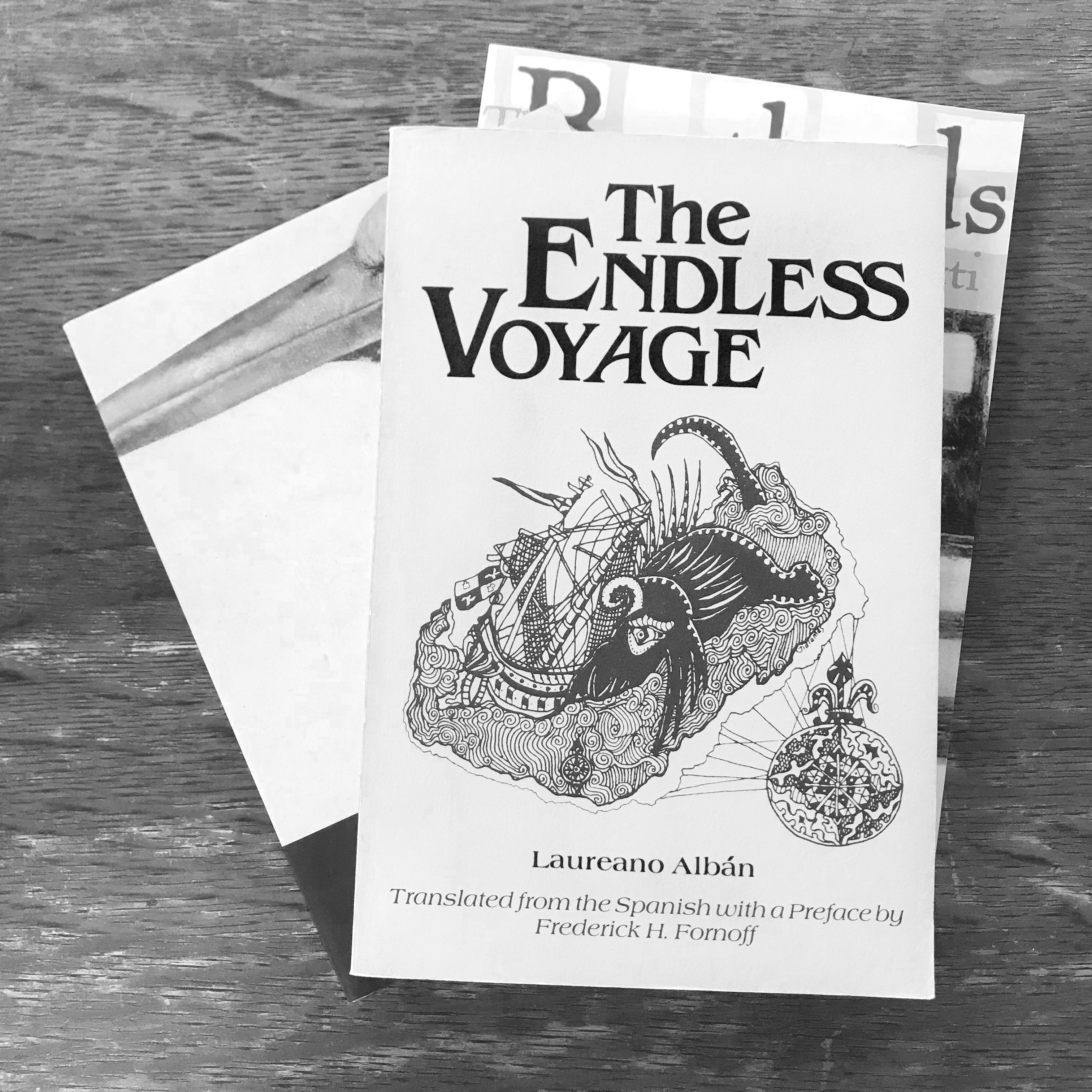This is probably a good moment to mention that I probably should research the books I review more before reviewing them. Googling this book after reading it shows there are a lot of new books with the same name, and that this review will either be confusing to people or just incredibly out of date. The while this book is reward winning, there isn’t actually a single review of this book on Amazon (I don’t link to the books as I don’t want to seem like I’m selling them) but I do look at other people’s reviews to see if I’m not totally off base. Laureano Alban has already seemed to be lost to the annuals of history. He’s still alive, but his books are mostly neglected.
The preface by Fredrick H. Fornoff is everything I hate about prefaces- it’s almost a parody of what refaces are. Needlessly diving into every line over explaining every part of with incredibly pointless lexicon that makes it incredibly hard to read.
This book is divided into ten cantos, each cantos has three poems. Cantos are generally just long form poetry that are often translated to song- these don’t seem to be aimed for song but maybe the translation has this side lost this aspect. The translation I do not believe does the work over all justice either- it keeps a lot of the lexicon issues for the first few cantos of the book.. First cantos for example had “Like a sexual touch full of fishes all phosphorescence rising toward the bed”. Hmm. “diaphanous hoofs”. The real lesson here is maybe indulge in fewer translated books. The translation is so heavy handed with its loose language I almost gave up in the second cantos. “Like a mobile gaze of submerged rain, light tied to an incessant, secret diaspora”.
Once you get to about the 5th Cantos, it really starts becoming more clear, a mix of people looking for something new, and the same people dreaming that the ship might sink at sea. They tire of sailing, and become a blur with the people they find on their trip. Sometimes the poetry becomes unclear if its from the view of the sailors or the people they find, which emphasizes the point that it is new for both people involved. This is the true strength of a poetry, a tale of something relatable through the generations past. A true narrative that is both stuck in time but can be felt in another era. They have discovered, and have become discovered. Eighth Cantos is arguably the strongest canto in the book. It might lose some context but I’d argue that you should read just this poem and leave the rest of the book on the shelf.



